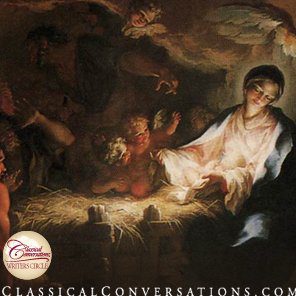Christmas is the celebration of the incarnation of Jesus Christ, the Son of God. He came to do a lot of things: forgive sins; defeat sin, death, and hell; establish His Church; be enthroned as King of kings and Lord of lords; redeem creation; and so on. He came, however, because of just one word: love.
For God so loved the world, that he gave his only Son, that whoever believes in him should not perish but have eternal life (John 3:16, ESV).
Christmas tells us God loves us, for that is what moved Him to send His Son to us. Love is a Christmas word. Do we, however, understand what love means, what it is? C.S. Lewis might wonder. He said, “Don’t use words too big for the subject. Don’t say ‘infinitely’ when you mean ‘very’; otherwise you’ll have no word left when you want to talk about something really infinite.”
C.S. Lewis might believe we do not understand what love means because we have overused it. Consider the many ways we use the word love.
• I love chocolate.
• I love sleeping when it is raining.
• I love snuggling up with a good book.
• I love it when you do that.
• I love you.
• I love jazz.
• I love birthday parties.
We use the word love to indicate any degree or manner of affection or preference we have for anything we can think of: music, food, people, days, events, activities, and feelings. When I tell my wife I love her immediately after I have exclaimed my love for freshly mowed grass, what am I actually communicating to her? I love freshly mowed grass so much that I would die for it? Or, that I enjoy her company the same way I enjoy the smell of freshly mowed grass? Because of our overuse of the word love, I may have no word left for when I want to talk about something I really do love.
I know of one father who has forbidden his children to use the word love for anything other than people. His children cannot ask to go out for pizza, followed by an exclamation of their love for pepperoni. He is intentional about not wanting them to lose their understanding of the word or the impact of its meaning when each of them grows up and can finally tell the woman he will marry that he loves her.
On the other hand, we have not necessarily lost our ability to communicate our love to another person because of this strange phenomenon. When I tell my young daughter I love her, she has often asked me, “How much?” To this I respond, lovingly with a belly laugh and a big smile, “This much!” as I hold my arms out as far as I can. There is a joy that comes with the affectionate play of describing my love for my children. There is, moreover, poetry and beauty that comes with the description of my love for my wife. I cannot simply trot past her and say, “I love you,” and expect the fullness of my meaning to be conveyed. I can, however, emphasize the fullness of that meaning with poetry and beauty. I can extend a gentle kiss or embrace, I can pair it with a token or gift, or I can extend it with additional language, “I love you like Romeo loves Juliet.” Or, “I love you more now than the day we met, I will love you until we die, and I will love you beyond.” We might even do so by using the language of Scripture and telling our loved one, “I love you so much that I would die for you.”
This, in fact, is what God has told us. God the Father did not merely tell us that He loved us; He told us that He loved us so much that He gave us His only Son. God Himself uses the poetry and beauty of language to convey the depths and heights of His love for us. And it is this love that gave us Christmas.




